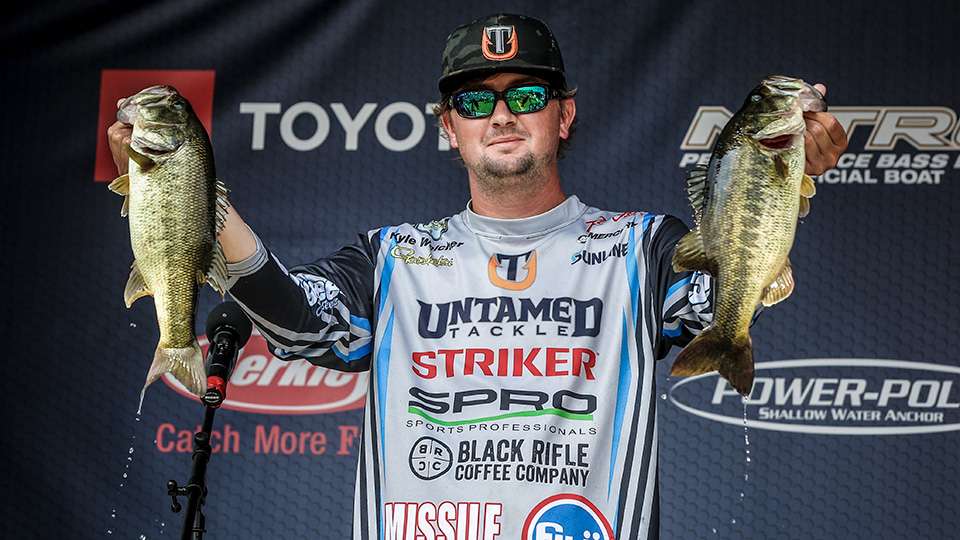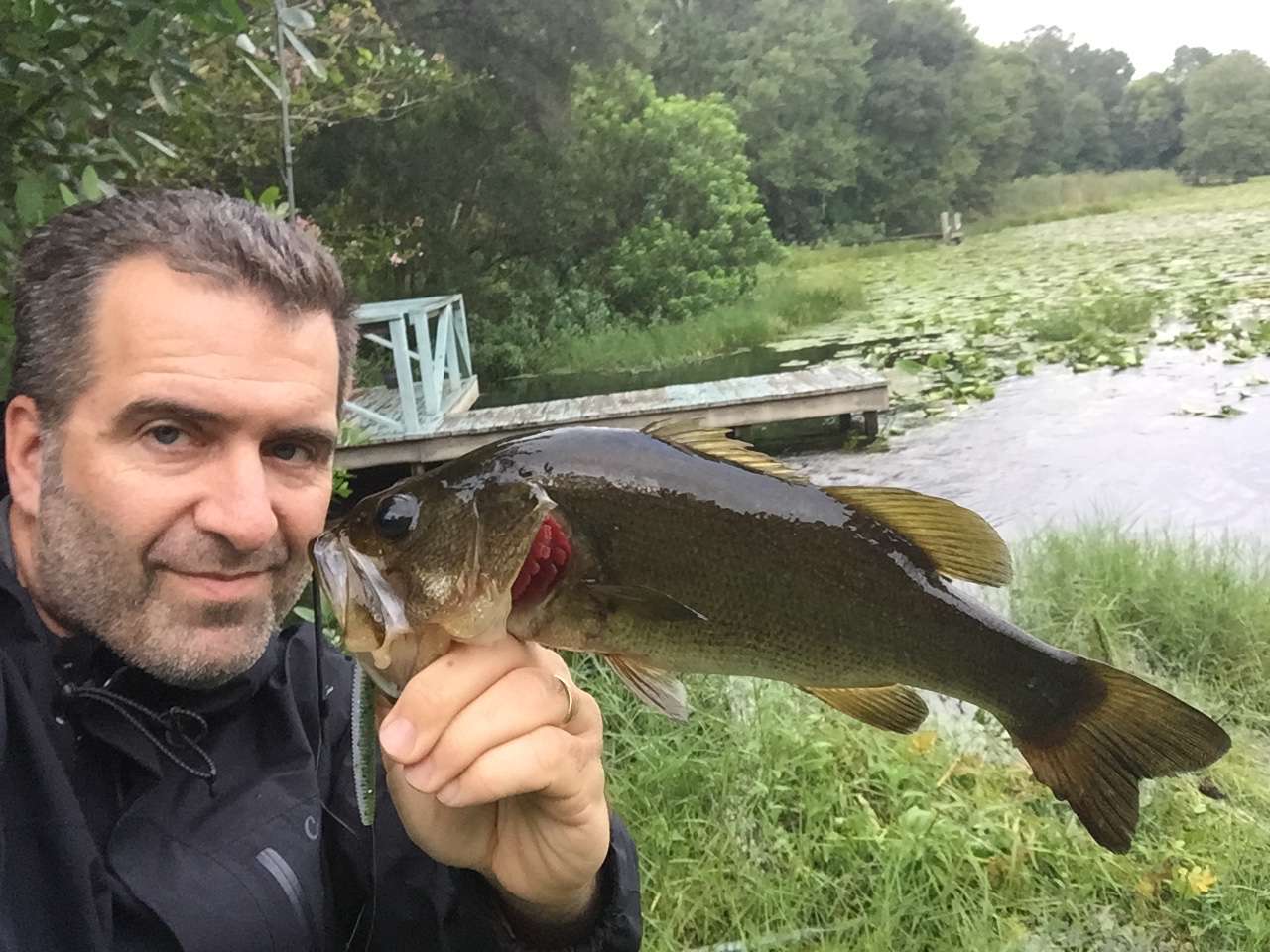
At 12:03 a.m., Feb. 12, 2014, Kyle Welcher walked into IP Casino in Biloxi, Miss. Just three minutes into his 21st birthday, he was primed and ready to officially pursue a course that, oddly enough, has helped him become an effective Bassmaster Elite Series angler — and one bound for his second world championship at the 2022 Academy Sports + Outdoors Bassmaster Classic presented by Huk.
Growing up in Opelika Ala., Welcher was never far from a deck of cards, as most of his relatives played casual games like Knock Rummy — the first one he learned — and held informal poker tournaments with $20 buy-ins. Deeply rooted in the family fabric, these influences would later spawn a productive run as a professional poker player.
Believe it or not, Welcher thanks his grandmother, Anna Guess — he calls her Nana — for not only teaching him the rules and strategies of Texas Hold ‘em, but also for being his biggest fan.
The backstory
Recalling her grandson’s early fascination, Nana said: “When he was 2 years old, he used to love to sit and watch me shuffle cards. He’d say, ‘Do it again; do it again.’”
By his adolescent years, Welcher’s well-established angling interests yielded only to his poker fascination. Much like competitive fishing, the game’s mental aspect intrigued him, and since his grandmother was the only family member who had spent significant time at serious casino tables, he found her deep well of knowledge and perspective magnetic.
“When you’re a 12-year-old boy, you don’t typically have that much in common with your grandmother,” Welcher said. “Nana wasn’t into fishing, but we had a shared interest in poker, so that’s how we bonded.”
Through countless hands, questions asked and answered, practical knowledge laced with generational wisdom inspired and motivated a young mind. Poker snacks helped.
“He loved bacon,” Nana recalls. “I’d make a whole pack, and he’d eat on it all day.”
Looking back, Welcher considers the common ground he shared with his Nana foundational in helping him develop the confidence to pursue his passions — at the card table and on the water.
“Trying to be a professional fisherman kind of goes against the grain of society — it’s not the safest route to a successful life,” Welcher said. “It’s the same way in poker, because 95% of the people that play are going to lose money.
“When I was trying to start playing poker (professionally), everybody would say, ‘That’s not a good way to make a living, you need to stay away from the casinos, nobody wins there.’ But, initially, (Nana) was the only one who told me, ‘If that’s what you want to do, that’s what you should do.’”
Piscatorial parallels
For a few years prior to turning 21, Welcher traveled to casinos in Florida and other states where the minimum age was 18. Those experiences instilled lessons similar to those that guide his professional fishing career.
Money matters: Survival on the competitive fishing scene demands economic prudence, and Welcher learned the same applied to poker travel. Early sojourns with (now) wife, Hunter, weren’t exactly budget-conscious, but he realized the need for financial discipline.
“We kind of just hung out, played poker a lot and didn’t really manage the money right,” he said. “We’d rent jet skis and eat at fancy restaurants. But I kept up with how much I’d won on (an app) I had on my phone.
“When I got back from a trip, I said, ‘We actually won a decent amount, but we didn’t save any of it.’ On the next trip, it was all budgeting, saving the money and building up enough for smart buy-in strategies.”
Frugality allowed Welcher to save money, so when he turned 21, he was better positioned to step up his pursuits in Biloxi, Las Vegas and other poker Meccas. He’s played in a few tournaments, but Welcher favors the greater flexibility of cash games.
Time management: Welcher remembers playing 105 hours of poker in one week, but he quickly realized that more is not always better. Dialing back the table time and factoring in rest, morning exercise and good meal schedules kept him sharp and ready to make better decisions. This mindset has carried forward into his Elite week schedule management.
Strategic mindset: As Welcher notes, understanding probability anchors poker success. On the water, he’s learned to make similar calculations.
“I try to give every (major) decision I make a percentage. So, if I’m trying to decide between two starting spots, I factor in the run time, how long it will take me to fish each area and what I think are the odds of catching a limit or getting a big bite.”
Welcher said he tries to not overanalyze each stop he makes in a day, but he does maintain probability awareness.
“If I see a beautiful laydown while I’m going down the lake, I might think, ‘There’s probably a 10% chance I’ll get a bite, but it’s only going to take me three minutes to fish it,’” Welcher said. “So, if you take a 10% chance to get a bite every three minutes, you’re going to have a really good day.”
Learning curve: Complementing Nana’s lessons with ongoing study — YouTube videos, online forums, etc. — has sharpened Welcher’s poker game in much the same way that lake study and tournament history review help his Elite performance. Furthering the analogy, Welcher has kept a log of his online poker play with analyses of good and bad decisions.
Sustainable pattern: While he won plenty of hands against his Nana, Welcher likens his development to the pursuit of angling consistency.
“That’s the thing about poker. Anybody can win any hand, any time, because sometimes, you’re just dealt the winning hand,” Welcher said. “The skill is in betting strategies. As far as winning hands, I’d win a pretty good bit, but as far as winning the most chips, it wasn’t in my favor for a few years.”
Today, Nana notes that the apprentice is now the teacher.
“When he started going to Vegas, he’d call me and talk about how he was doing,” she said. “After a while he got so good at it, now he gives me advice.”
Classic approach
Now that her grandson competes at bass fishing’s highest level, Nana’s become a fan of the sport. “I’m so proud of him. I go to as many (Elite events) as I can.”
Welcher said he appreciates how his poker background still provides fodder for conversations with his grandmother. She may not have much input on tournament strategy, but they can always find a card-related topic.
Will Welcher’s poker prowess help him during the Classic? Nana’s betting it will — largely because of what she sees as her grandson’s detail-oriented nature.
“He focuses on whatever he’s doing, and he thinks about how it all comes together” she said.
Welcher agrees, but his take on the generally accepted no-points, go-big-or-go-home Classic mindset might be just what he needs to win the biggest hand of the year.
“This is going to be exactly the same as a poker game,” he said. “The No. 1 thing I’ve always wanted is consistency. You want something consistent and sustainable if you’re going to try to make a career out of it.
“Yeah, I’m going to try to swing and catch them as good as I can, but you have to be there on Day 3. That’s the No. 1 goal — get to Day 3 by any means necessary.”

